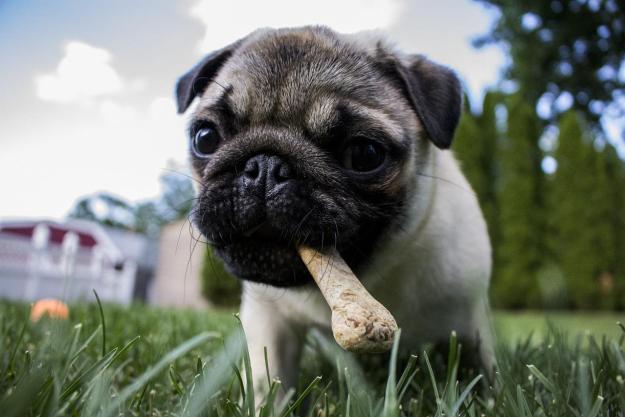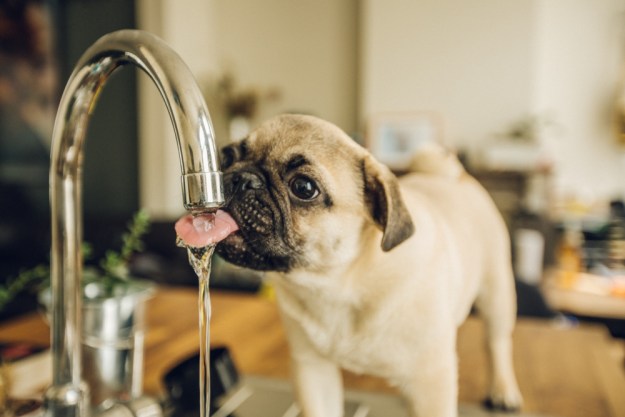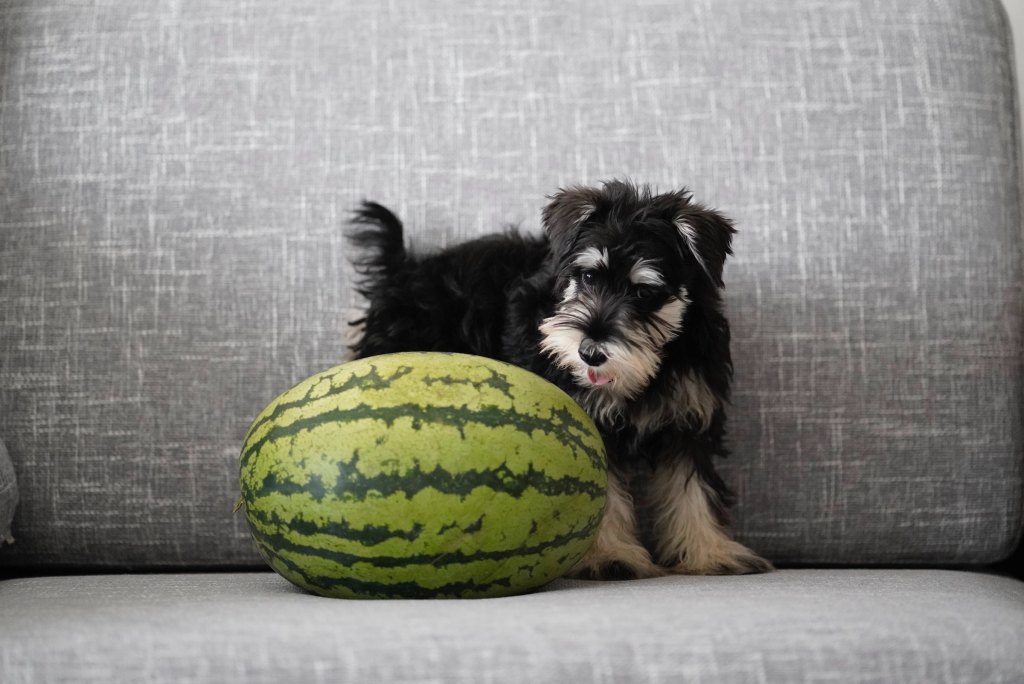
As summertime rolls around once more, you might find yourself reaching for a refreshing snack… but you won’t be the only one! Odds are, your dog will also be looking for a way to reenergize, and fresh fruits like berries and melons can be the way to go. Watermelon is such a classic summer treat, after all — so why not try other melons, too?
But can dogs have cantaloupe? What about honeydew? Before you let these questions confuse you, read on to find out everything you need to know about dogs and melons. Who knows — you just might find your pup’s new favorite treat!
Can dogs have watermelon?
It could come as no surprise to learn that watermelon is safe for dogs. It is mostly water, after all! That means this fruit has great potential to keep your dog cool during hot summer months, but let’s be honest — there’s almost no bad time for a slice of watermelon.
As the American Kennel Club (AKC) notes, there are a few precautions you should take when serving your dog watermelon. Make sure to buy a seedless kind or remove any seeds before giving your pup a bite, as seeds can cause intestinal blockage or irritation.
“Seedless melons were developed 50 years ago,” the AKC notes. “They contain no black, mature seeds. But you may see white seed coats, where the seed did not mature.” So that’s what those white pods are!
As for the watermelon rind, it should also be removed. You might think it would be a great chew for your pup, but it can also cause gastrointestinal upset that can lead to vomiting or diarrhea (via Hill’s Pet). And don’t forget to cut the watermelon into small pieces before giving it to your dog.
Is watermelon good for dogs?
Its 92% water content makes this fruit a low-calorie option for almost any pup, notes the AKC, but it does still pack a nutritional punch, too. Watermelon contains vitamins A, B6, C, and potassium, as well as virtually zero cholesterol or fat.
That being said; watermelon shouldn’t be a staple of your dog’s diet. It’s considered a treat, at the end of the day, and should comprise no more than 10% of your pup’s daily calorie intake. Still, it’s the perfect ingredient for a summertime goodie or a Fourth of July dog treat, especially when blended and frozen.
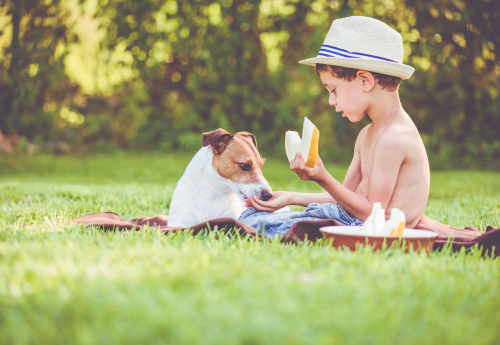
Can dogs eat cantaloupe?
Just like watermelon, cantaloupe is safe to share with your dog. It is higher in sugar than its water-based cousin, explains Purina, so it’s not ideal for pups with blood sugar or obesity concerns. When in doubt, you can always ask your veterinarian.
You’ll need to prepare this kind of melon similar to watermelon before giving some to your dog. Remove the rind and all the seeds, then cut the fruit into bite-sized pieces. This way, you won’t have to worry about your dog choking, either.
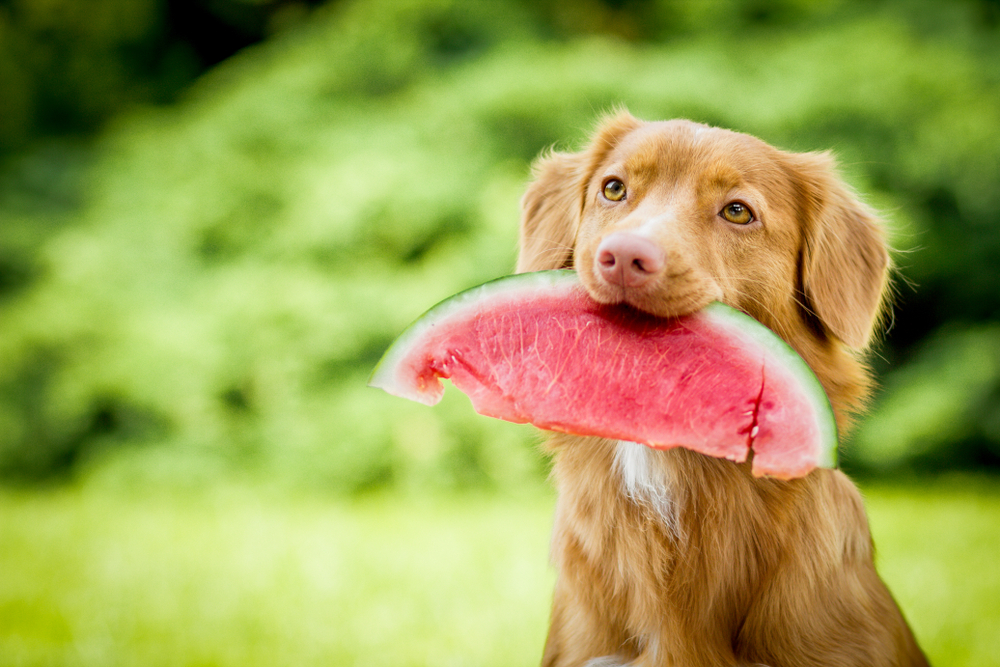
Can dogs have honeydew?
In case you haven’t noticed the trend here, honeydew is also A-OK to give to your dog. And the same rules apply: Remove all seeds and traces of the rind before serving it to your pup and be sure to give your fur baby small pieces.
Now that you know melon is safe to share with your dog, you can start preparing your summer fruit salad. With so much melon around, you can even let your pup do a little taste testing!
Editors' Recommendations
- The Best Dry Dog Food of 2023 for a Balanced Diet
- Why does my dog have a bald patch on their tail? Here are the answers you need
- Xylitol is dangerous for dogs: 10 surprising products that contain it as a hidden ingredient
- What is the best food for older dogs? These 6 vet-approved kibbles and canned foods won’t steer you wrong
- Are Starbucks Puppuccinos bad for dogs? Here’s what veterinarians have to say


